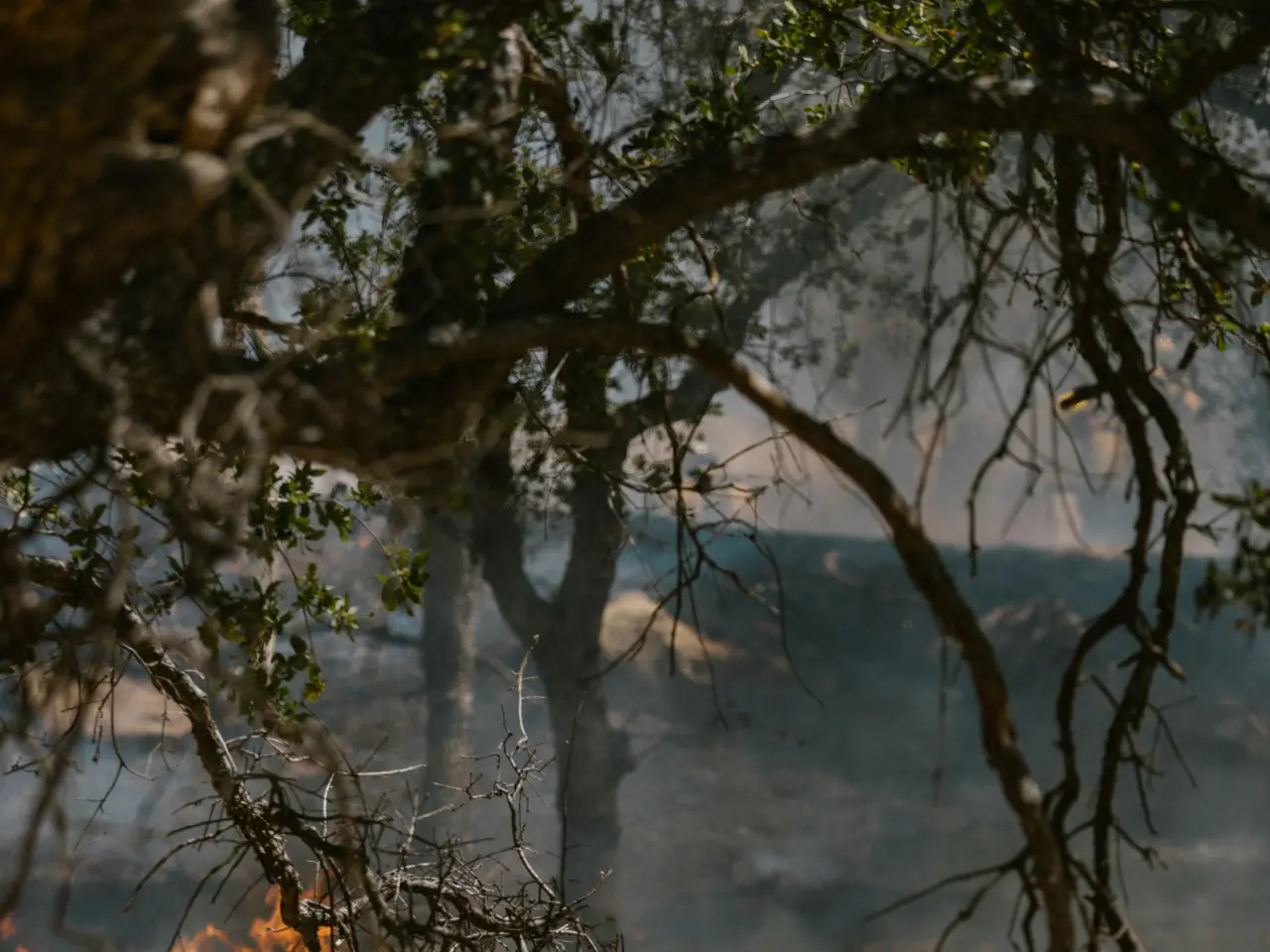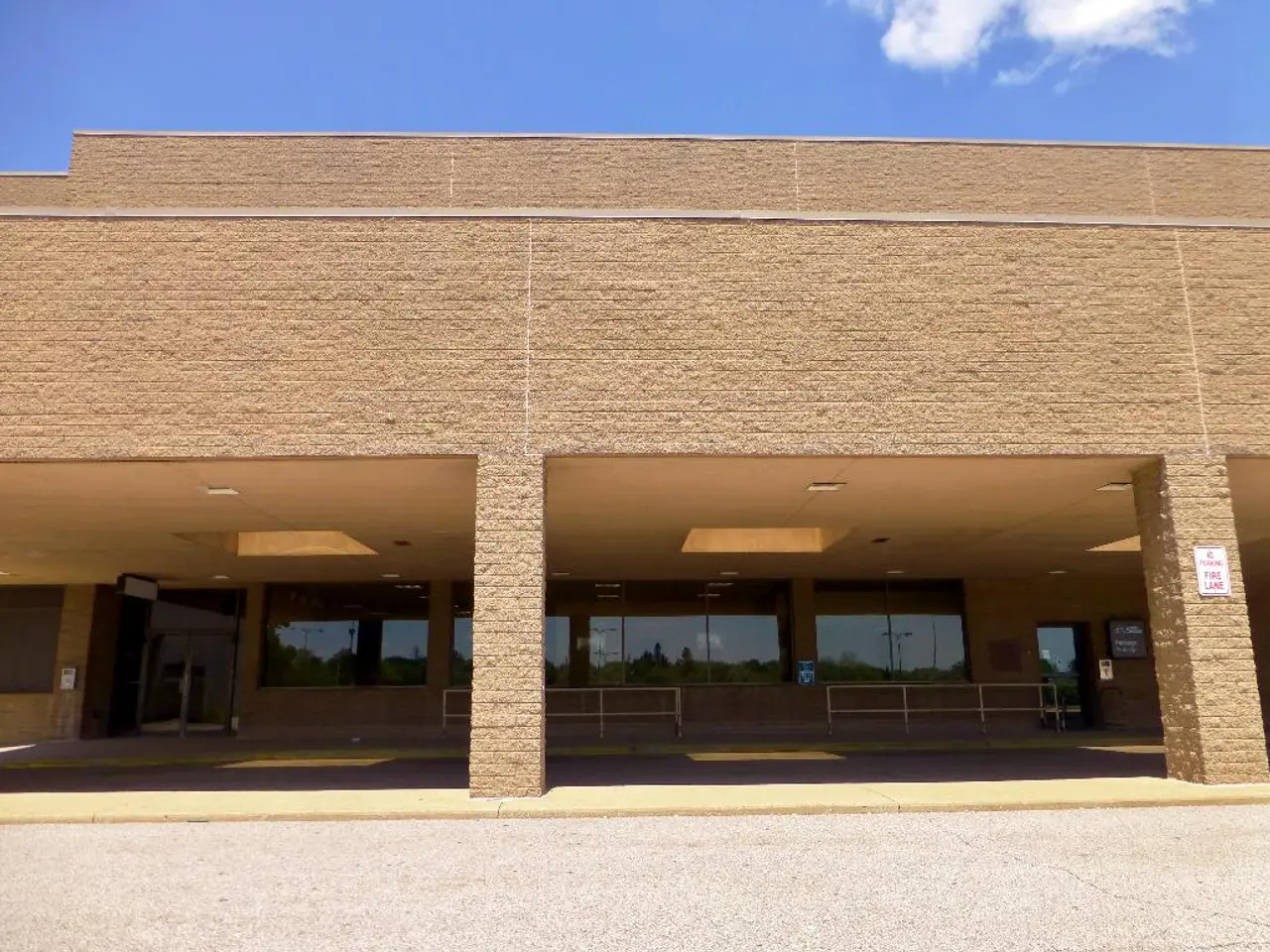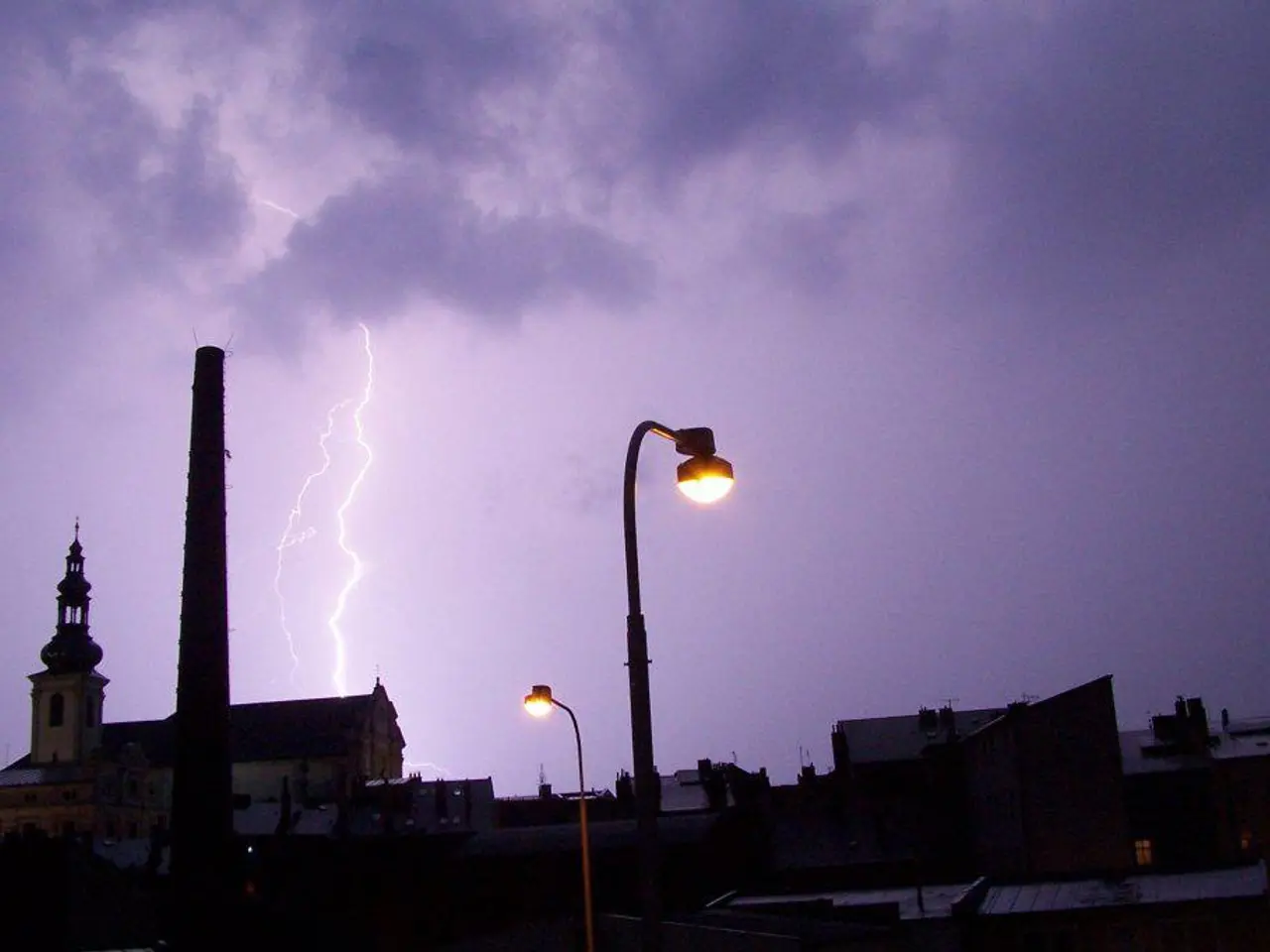Drought and wind escalate Easter fire's threat levels
In the face of prolonged periods of drought and the increased risk of wildfires, Austria has implemented stringent fire safety measures, particularly during traditional outdoor celebrations such as Easter fire events in Styria and Tyrol.
The organization of Easter fires typically requires approval from local authorities, who assess current fire risk and weather conditions. During periods of extreme drought, local or regional authorities may issue general fire bans, prohibiting all open fires—including Easter fires—until conditions improve.
Safety distances are a crucial aspect of these regulations. Fires must be kept at a safe distance from flammable materials, buildings, forests, and agricultural land. Organizers are often required to ensure adequate firefighting equipment is on-site, and a fire watch may be mandated for the duration of the event.
Authorities rely on meteorological services to provide up-to-date drought and fire risk assessments, which directly inform decisions on whether to permit or prohibit traditional fires. In times of high risk, municipalities often communicate fire prevention measures widely, including through local media, community boards, and digital platforms.
When drought and wildfire risks are severe, additional measures may be imposed. Local governments can completely ban Easter fires, intensify patrols, launch awareness campaigns, and encourage communities to voluntarily forgo traditional open fires.
Recent years with significant drought have seen increased restrictions on open fires, including traditional celebrations. While specific 2025 ordinances for Styria and Tyrol were not found, historical precedent and general Austrian crisis management suggest that fire prevention regulations are tightened in direct response to environmental conditions.
For organizers and participants, it is essential to confirm current rules with the local municipality or fire department before planning any outdoor fire event. If fire bans are in place, consider postponing the event or adopting fire-free alternatives. Staying informed about official announcements regarding weather, drought, and fire risk throughout the spring is also crucial.
In Styria, the Styrian Firefighters' Association is requesting voluntary registration of private Easter fires online. The Styrian region is experiencing a high risk of Easter fires due to extreme drought, and wildfire ordinances prohibit smoking and setting fires in the forest, as well as prescribed fires in the district of Kufstein.
In Tyrol, the Tiroler Unterland region is experiencing an increased wildfire risk. No specific information about voluntary registration of private fires or minimum distances was mentioned for other districts. In Graz, no Easter fire jumps are allowed, and only one fire per municipality is permitted in the districts of Graz-Umgebung or Leibnitz.
Thomas Meier from the Provincial Firefighting Command states that there are minimum distances to be observed for Easter fires, and the minimum distance to energy supply facilities is 100 meters. The minimum distance to trees and shrub groups is 40 meters, and the minimum distance to high buildings, houses, and streets is 50 meters.
As the Easter weekend approaches, the forecast predicts wind, which will further increase the danger. It is crucial to consult local authorities directly for the latest, region-specific guidance and to ensure all safety measures are in place and that participants are aware of emergency procedures.
Fires related to Easter celebrations may be subject to general fire bans during severe drought conditions, especially in regions like Styria and Tyrol where the risk of wildfires is elevated. To avoid any conflicts with fire safety regulations, organizers and participants should always confirm the current rules with local authorities before planning any outdoor fire event.







